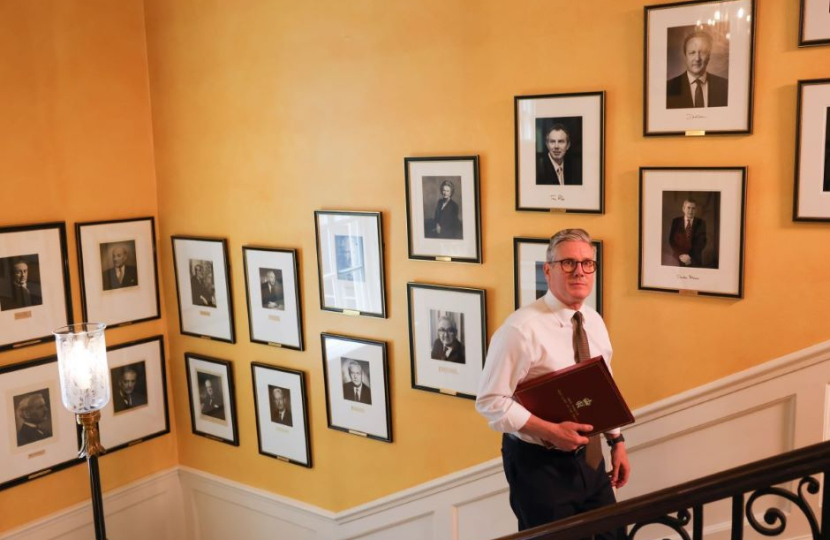
When Keir Starmer bills himself as a Clement Attlee Mark II, the comparison works on some levels. Both were lawyers of bourgeois background, born in Sussex, and swept into power in large landslides in their early 60s.
Yet when the Prime Minister and his colleagues claim to have inherited the worst economy since Attlee, who battled against what John Maynard Keynes described as a ‘financial Dunkirk’, they push the parallels too far.
What Labour inherits today is no such ‘Dunkirk’, and peddling such doom and gloom risks perpetuating a declinist narrative that could damage recent economic progress.
In 2010, the Conservatives came to power amid far more challenging economic circumstances than those which Labour confronts today. Inflation and unemployment were both higher then than they are now, and the budget deficit was 2.5 times larger.
While it is true that the Covid-19 pandemic and the war in Ukraine have since injected a great deal of instability back into the global economic landscape, with debt surging and growth stalling, it is worth remembering that had Labour presided over these challenges the economic picture would be very different – and far more bleak.
My own eyes and the official record bear witness that, throughout that time, Labour erred on the side of an even larger state. From longer lockdowns which would have meant lower revenues and bigger backlogs, to higher public spending that would have resulted in more debt and more taxes.
That said, those wishing to challenge Labour’s alternative history do not need to rely on an alternative history of their own. The latest economic data speaks for itself.
Debt - at 97.6% of GDP - is certainly still too high, but it has not reached the record levels of the mid-1940s, and is lower now than it was at any point between 1915 and 1963.
Inflation is now at 2% - the target rate - which is a far cry from the rampant inflation of the 1970s. It has fallen ahead of expectations.
Unemployment is down to 4.4%, far below what it once was under previous governments - and what it reached at the height of the pandemic.
The economy is growing again, too. The IMF recently revised upwards its growth outlook for the UK in 2024 to 0.7%, and Britain also started 2024 with the highest growth rate within the G7.
Business confidence is now at +16.7, which is well above the score of -45.3 which was once recorded under Gordon Brown.
The Prime Minister’s claim to have inherited the worst economy since Attlee is therefore false at best - and disingenuous at worst.
While lacking any foundation in fact, there is an obvious political expediency in such claims. They insulate the Prime Minister and his party from poor performance and sluggish progress, while tarring the Conservatives with the brush of financial incompetence. At the same time, they allow any favourable economic news to be attributed to the new government and soften the blow of inevitable tax rises.
In exchange for a stronger political position, the Labour Party are clearly content to weaken the reputation of the United Kingdom by perpetuating a declinist narrative that does not comport with recent economic history – even though misrepresenting the state of our economy and neglecting recent progress in this way risks scaring away investors, dampening business confidence, and so becoming a self-fulfilling prophecy.
This makes a mockery of the Prime Minister's “country first, party second” mantra.
Of course we face economic challenges: debt remains too high, wages and productivity need to rise faster and further, and workforce participation must increase.
Still, sound economic policy starts with honesty not hyperbole, and it is poor form for a Prime Minister who once promised “frank hope” to put a negative narrative ahead of the numbers.
Winston Churchill famously described Clement Attlee as ‘a modest man who has a great deal to be modest about’. The current Prime Minister may wish to avoid this particular comparison, but that is the line he is currently taking on the British economy.
Picture by Simon Dawson / No 10 Downing Street - https://creativecommons.org/licenses/by-nc-nd/2.0/

